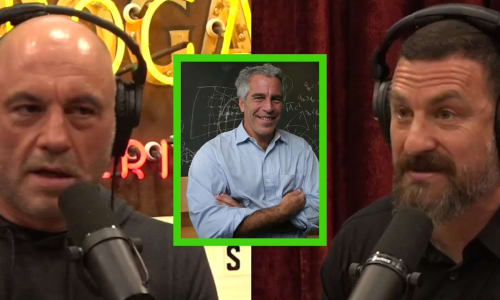See all PowerfulJRE transcripts on Youtube

Andrew Huberman Explains Why Scientists Hung Around Jeffrey Epstein
8 minutes 27 seconds
🇬🇧 English
Summaries Topics Transcript Chapters Titles Socials Twitter Blog Post Newsletter Quotes Quizzes Ask ChatGPT

Omnivision Solutions Ltd
- Getting Started
- Create Transcript
- Pricing
- FAQs
- Recent Transcriptions
- Roadmap